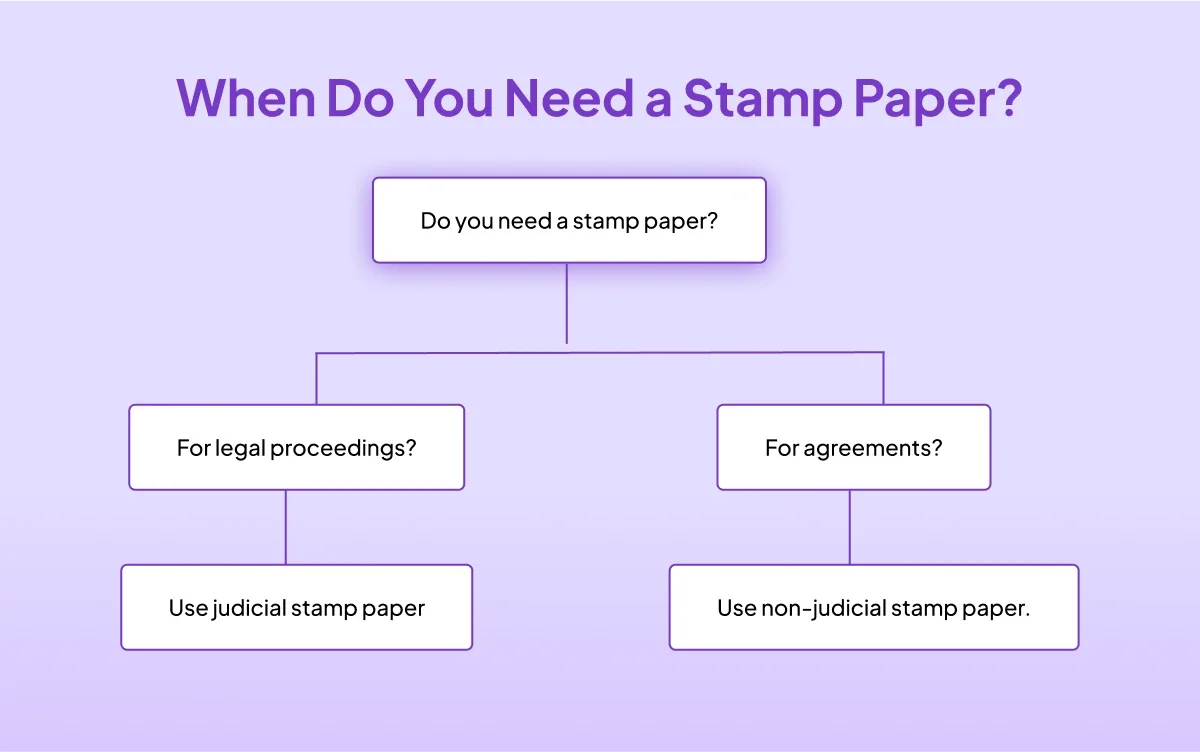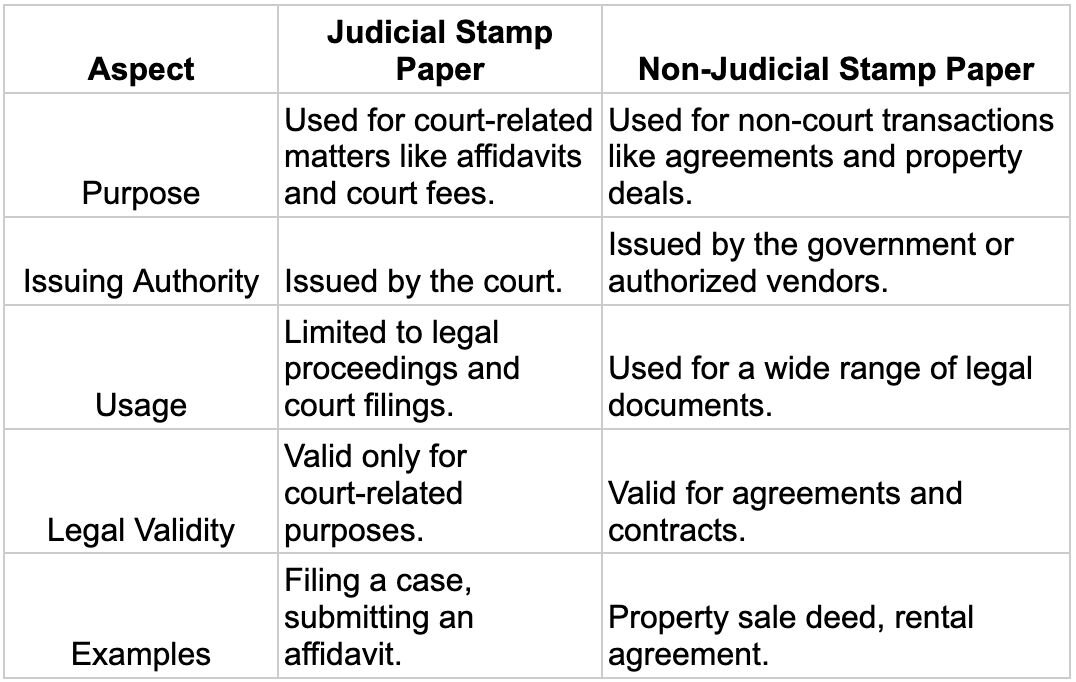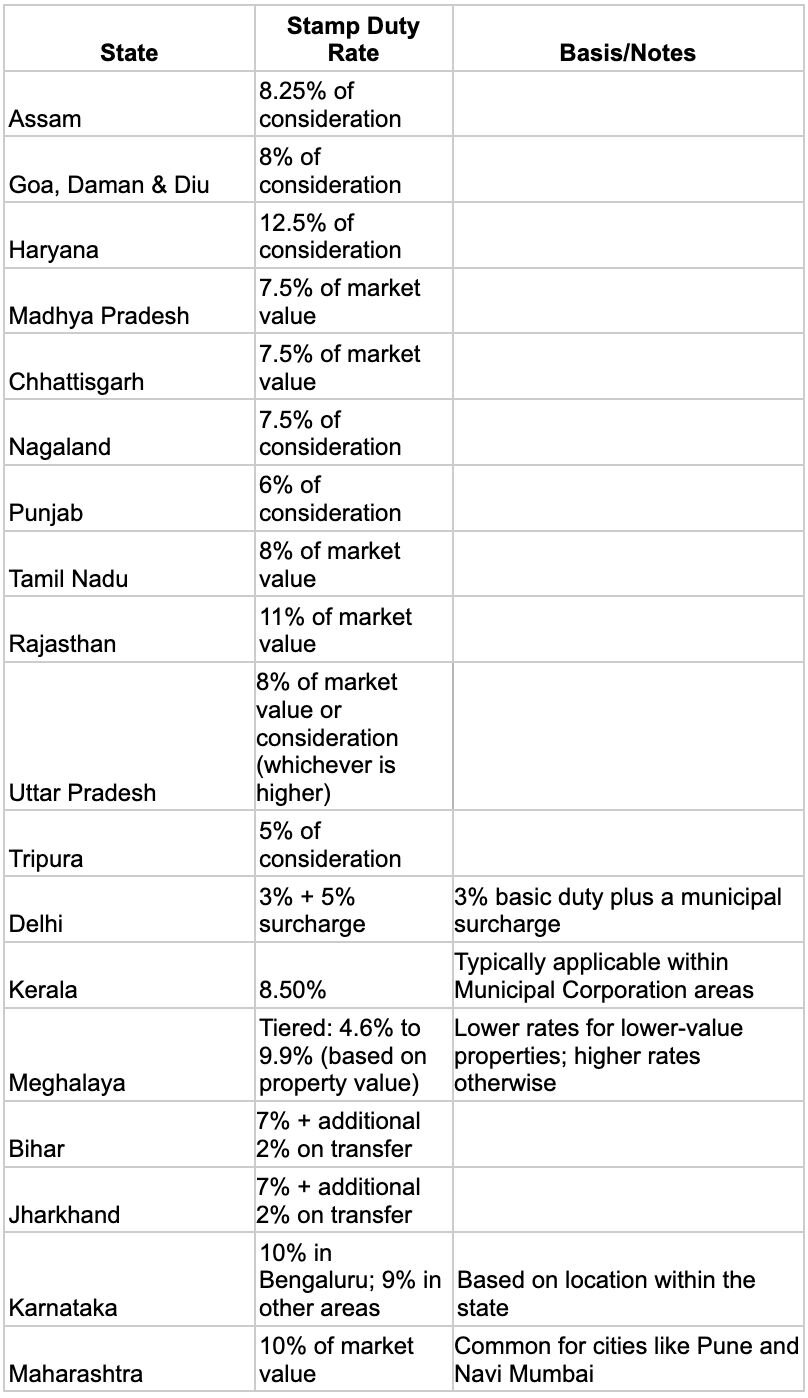When it comes to legal and business transactions in India, stamp papers play a crucial role. They are not just pieces of paper but are legally binding instruments that validate agreements, contracts, and other important documents. However, not all stamp papers are the same. Understanding the difference between judicial stamp paper and non judicial stamp paper is essential for anyone involved in legal or business dealings.
They are used to validate agreements, property dealings, and court proceedings. However, not all stamp papers serve the same purpose—there are judicial papers and non judicial stamp papers. Understanding their differences is important for ensuring compliance with legal and financial regulations.
Keep reading to break down everything you need to know about judicial and what is non judicial stamp papers, their purposes, legal validity, and key differences.
What is a Stamp Paper?
Definition and Purpose
A stamp paper is a special type of paper that has a pre-printed revenue stamp. It is used to execute legal documents, agreements, and contracts. The value of the stamp paper corresponds to the stamp duty payable on the transaction. Stamp duty is a mandatory tax levied by the government to validate legal documents.
Why Are Stamp Papers Required?
Stamp papers serve as proof that the required stamp duty has been paid. They ensure that the document is legally enforceable and can be used as evidence in court if needed. Without a properly stamped document, the legality of the transaction can be questioned, making stamp papers indispensable in legal and business dealings.
In short:
- To legally validate agreements, contracts, and affidavits.
- To ensure that transactions comply with government tax regulations.
- To prevent fraudulent activities and disputes.
- To provide a legal backing to financial and property-related transactions.
What is a Judicial Stamp Paper?
Definition and Explanation
A judicial paper is a type of stamp paper used exclusively for court-related matters. It is primarily used to pay court fees, file legal proceedings, or submit affidavits. Judicial stamp papers are issued under the authority of the court and are mandatory for certain legal processes.
Purpose and Usage
Judicial stamp papers are used in the following scenarios:
- Court Fees: When filing a case or petition in court, the fee is paid using judicial stamp papers.
- Affidavits: Sworn statements or affidavits submitted in court must be printed on judicial stamp papers.
- Legal Proceedings: Any document submitted as part of a legal proceeding may require judicial stamp papers.
Legal Validity and Importance
Judicial stamp papers are legally valid only for court-related matters. They cannot be used for non-court transactions like property agreements or business contracts. Their importance lies in their role in ensuring that court fees and legal documents are properly authenticated.
Read: Types of Business Contracts
Who Needs Judicial Stamp Papers?
Judicial stamp papers are typically required by:
- Individuals filing court cases: Anyone involved in a lawsuit must use judicial stamp papers to pay court fees.
- Lawyers submitting affidavits or legal documents: Legal professionals use judicial stamp papers when submitting sworn statements or petitions on behalf of their clients.
- Businesses involved in legal disputes: Companies facing litigation need judicial stamp papers for filing petitions, appeals, and other court-related matters.
- Government agencies: Certain government-related legal procedures also require judicial papers.
- Individuals swearing affidavits: People needing legally binding statements, such as affidavits for identity proof or name changes, must use judicial stamp papers.
Examples of Usage
- Filing a civil suit in court: Any individual or company filing a lawsuit must submit documents on judicial stamp paper as proof of paid court fees.
- Submitting an affidavit for a name change: Individuals seeking legal recognition of a name change require judicial stamp paper for their affidavit.
- Paying court fees for a legal petition: Any petition, including appeals or requests for special relief, must be accompanied by the required judicial stamp paper.
- Obtaining bail bonds: In criminal cases, judicial stamp papers are used for bail bond agreements.
- Sworn declarations for financial or legal purposes: Affidavits confirming financial transactions, guardianship claims, or property inheritance often require judicial stamp papers.
What is a Non-Judicial Stamp Paper?
Definition and Explanation
A nonjudicial stamp paper is used for non-court-related transactions. It is the most common type of stamp paper and is used for agreements, contracts, and property transactions. Nonjudicial stamp papers are issued by the government and are mandatory for validating various legal documents.
Purpose and Usage
Nonjudicial stamp papers are used in the following scenarios:
- Property Transactions: Sale deeds, lease agreements, and mortgage documents.
- Business Agreements: Partnership deeds, loan agreements, and service contracts.
- Legal Documentation: Power of attorney, indemnity bonds, and gift deeds.
Read More: How digitization & eStamping make documentation easy?
Legal Validity and Implications
Non-judicial stamp papers are legally valid for executing agreements and contracts outside of court. They ensure that the document is enforceable under the law. Failure to use the correct value of stamp paper can render the document invalid or lead to penalties.
Who Requires Non-Judicial Stamp Papers?
- Individuals buying or selling real estate: Property buyers and sellers must execute sale deeds on non-judicial stamp paper to make transactions legally valid.
- Businesses entering into agreements or partnerships: Companies entering into contracts, mergers, or other business agreements require non-judicial stamp papers for legal authentication.
- Landlords and tenants signing rental agreements: Rental agreements executed on non-judicial stamp paper ensure legal protection for both parties in case of disputes.
- Financial institutions and lenders: Loan agreements and promissory notes are often executed on non-judicial stamp paper to serve as legally valid evidence.
- Contractors and service providers: Agreements related to services, employment, or contractor work often require non-judicial stamp paper.
Examples of Non-Judicial Stamp Paper Usage
- Sale deed for transferring property ownership: Ensures a legally valid and enforceable property transaction.
- Rental agreement between a landlord and tenant: Provides legal clarity on terms and conditions of property leasing.
- Business partnership agreement to formalize a commercial deal: Defines partnership terms, profit-sharing, and operational responsibilities.
- Loan agreements between individuals or financial institutions: Establishes legally binding terms of repayment and interest rates.
- Power of attorney documents: Used to authorize an individual to act on behalf of another person in legal or financial matters.
- Service contracts and employment agreements: Ensures a legally binding agreement between an employer and an employee or contractor.
Read More: How to Write a Business Contract: 5 Easy Steps
Key Differences Between Judicial and Non-Judicial Stamp Papers
Stamp Duty in India
Mandatory Tax on Legal Documents
Stamp duty is a tax levied by the government on legal documents to validate their authenticity. It is imposed by both the central and state governments, with rates varying across states.
Importance in Legal Transactions
Stamp duty is crucial for:
- Validating property transactions.
- Enforcing agreements and contracts.
- Preventing fraud and ensuring transparency.
E-Stamping: A Modern Solution
To streamline the process and reduce fraud, the Indian government introduced e-stamping. This digital method allows users to pay stamp duty online and generate an electronically stamped document. It is secure, convenient, and widely accepted.
Read Here: Introducing eStamp - A Modern Solution
India and Stamp Duty: The Origins
Historical Background
Stamp duty was introduced in India during British colonial rule. The Indian Stamp Act of 1899 laid the foundation for the modern stamp duty system. Initially, it was a means of revenue collection for the government.
Evolution Over Time
Over the years, stamp duty evolved from a revenue-generating tool to a regulatory mechanism for legal transactions. Today, it plays a vital role in property and business dealings, ensuring the authenticity and enforceability of documents.
Role in Modern Legal Transactions
Stamp duty continues to be a critical component of India's legal framework. It not only validates documents but also provides a source of revenue for the government.
Understanding the difference between judicial and non-judicial stamp papers is essential for anyone involved in legal or business transactions. While judicial stamp papers are used for court-related matters, nonjudicial stamp papers are required for agreements, contracts, and property deals. Both types of stamp papers play a vital role in ensuring the legality and authenticity of documents.
At ZoopSign, we simplify document management with our e-sign and e-stamp solutions. Whether you're dealing with judicial or nonjudicial stamp papers, our platform ensures a seamless and secure experience. Explore our services today and take the hassle out of legal documentation!


